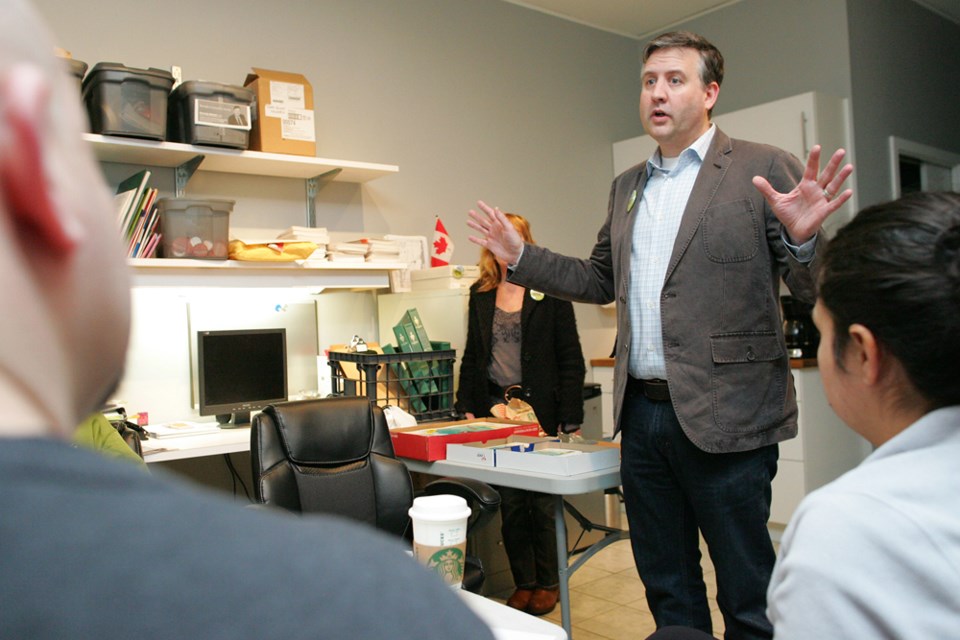A local MP’s bill that sought to increase the number of women in federal politics failed to receive enough support in the House of Commons on Wednesday night.
Bill C-237, tabled by Burnaby South MP Kennedy Stewart in March, was defeated by a vote of 209 to 68. Nays came from 127 Liberals, all the Conservatives who were in attendance and a handful of Bloc MPs.
“It was a watershed moment for the Trudeau government. This was really his chance to prove that he is a feminist and he’s failed Canadian women, I think,” Stewart told the NOW.
Prime Minister Justin Trudeau was not in the House for the vote.
The gender equity bill would have financially penalized political parties that didn’t have an equal amount of men and women on their slate.
Stewart proposed a gender split of 45-45-10, with 10 per cent accounting for “unspecified” candidates. If parties had more than a 10 per cent difference in the number of male and female candidates, they’d lose some of the public subsidies that cover election expenses. Under the current rules, candidates are eligible for rebates covering up to half of their costs.
Stewart believes his bill was defeated for political reasons, because it came from the NDP camp.
“I can’t see any other reason, I really can’t,” he said, adding he got support from across party lines, including Green Party leader Elizabeth May, some Bloc MPs and some Liberal backbenchers.
Earlier this year, several media outlets reported on a leaked briefing note that showed the Liberal government advising its cabinet to vote against Stewart’s bill. It outlined a few reasons, including not accounting for smaller parties that run a few candidates and refusing nomination of qualified candidates based on gender.
On Tuesday, Minister of Democratic Institutions Maryam Monsef told the House she couldn’t support the bill.
“We are not interested in just having more women run. We want more women winning and we want more women succeeding once they come here,” she said, noting, to do that, the House could have more family-friendly initiatives and more civility. Monsef also said it’s important to wait until the special committee on electoral reform comes back with its findings in December.
Stewart had hoped his bill would pass so it could go to committee where it could be studied and tweaked. He told the NOW he’s afraid something similar won’t be tabled before the next federal election in 2019.
“There’s not much else I can do. I gave it 100 per cent effort,” he said. “It was worth the effort though. I’ve had a lot of people from other parties saying thanks for doing this because you made the issue more prominent, and maybe the government will deal with it in another bill somewhere else, but I don’t think so.”



